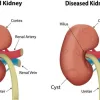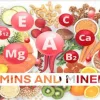How are vitamins and minerals affected by cooking and food processing?
Cooking and food processing can have a significant impact on the nutritional content of food, including vitamins and minerals. While some nutrients may be preserved or even enhanced through cooking, others may be lost or reduced. It’s important to understand how different cooking methods and food processing techniques can affect the nutritional value of the food we consume. Let’s explore how vitamins and minerals are affected by cooking and food processing:
Effects of Cooking on Vitamins:
- Heat exposure: Cooking methods such as boiling, steaming, and microwaving can cause vitamins to leach out into the cooking water or be destroyed by the heat. Water-soluble vitamins like vitamin C and B vitamins are particularly vulnerable to heat and can be lost during cooking.
- Vitamin C: This vitamin is highly sensitive to heat and can be easily destroyed when exposed to high temperatures. To minimize vitamin C loss, it’s advisable to cook foods that are rich in this vitamin for shorter durations and at lower temperatures.
- B vitamins: B vitamins are essential for energy metabolism and overall health. However, they are water-soluble and can be easily lost during cooking. To retain more B vitamins, consider steaming or stir-frying vegetables rather than boiling them, as this reduces the contact with water.
- Fat-soluble vitamins: Vitamins A, D, E, and K are fat-soluble vitamins that are relatively stable during cooking. In fact, the bioavailability of these vitamins can increase when certain foods are cooked, as heat helps release them from the food matrix, making them more accessible for absorption.
Effects of Cooking on Minerals:
- Heat stability: Unlike vitamins, minerals are generally more stable during cooking and are less likely to be destroyed or significantly affected by heat exposure.
- Calcium: This mineral is important for bone health and other physiological functions. Studies have shown that the calcium content of foods like broccoli and kale may be better absorbed when cooked, as cooking helps break down the cell walls and releases the calcium.
- Iron: Cooking can affect the availability of iron in food. While some forms of iron are retained during cooking, others may be lost or reduced. Foods rich in iron, such as leafy greens and legumes, should be cooked using minimal water and for shorter durations to minimize iron loss.
- Zinc: This essential mineral plays a crucial role in several bodily functions. While cooking can cause some zinc loss, the impact is minimal. However, food processing techniques like milling and refining can remove the outer layers of grains where zinc is concentrated, resulting in reduced zinc content.
- Sodium: Sodium is a mineral that is often found in high amounts in processed and packaged foods. Food processing can significantly increase the sodium content of the products, as salt is commonly used as a preservative and flavor enhancer.
It’s important to note that the extent to which vitamins and minerals are affected by cooking and food processing can vary depending on several factors, including the type of nutrient, cooking method, temperature, duration, and the specific food being cooked. Eating a variety of fresh, minimally processed foods can help ensure a balanced intake of vitamins and minerals.
Now that we’ve explored how cooking affects the nutritional value of food, you may be wondering how you can ensure optimal nutrition and achieve your health and fitness goals. That’s where Fitpaa comes in.
Introducing Fitpaa: Your Path to Optimal Health and Fitness
Fitpaa is an end-to-end AI-driven metabolism monitoring and management technology that can help you achieve your health and fitness goals. With the help of Fitpaa’s advanced technology and expert team of nutritionists, fitness coaches, and doctors, you can optimize your metabolism and improve your overall well-being.
Fitpaa works in three simple steps:
- Metabolism Assessment: Start by taking the Fitpaa Metabolism Assessment, which will help identify the root cause of your health condition. This assessment takes into account various aspects of your life to provide personalized insights.
- Get Your Fitpaa Capsule: Based on your metabolism, health, fitness goals, current lifestyle, and eating habits, Fitpaa’s expert team will prepare your Personalized Fitpaa Capsule. This all-in-one health and fitness plan, incorporating medical therapy, exercise therapy, nutrition therapy, and cognitive behavior therapy, is designed to optimize your metabolism and help you achieve your goals.
- Follow Your Fitpaa Capsule: With the help of Fitpaa’s real-time guidance technology, you’ll receive timely nudges and support throughout the day to complete your Fitpaa Capsule activities. The Fitpaa mobile app provides all the necessary tools, including a virtual workout trainer, diet tracker, performance tracking, and progress tracking.
Fitpaa is committed to helping you achieve your health and fitness goals with guaranteed results. With a dedicated team of professionals, personalized plans, and advanced technology, Fitpaa is your partner in your journey towards optimal health and well-being.
To experience the transformative power of Fitpaa and unlock your full potential, download the Fitpaa app today. Your well-being is our mission, and we are here to support you every step of the way. Don’t wait any longer – start your journey towards a healthier, fitter you with Fitpaa!
Remember, your health is in your hands, and Fitpaa is here to guide you on your path to success.









